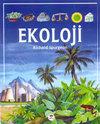Role of Dormancy Regulating Chemicals in Alleviating the Seed Germination of Three Playa Halophytes
Q3 Environmental Science
引用次数: 6
Abstract
The effects of dormancy regulating chemicals [nitrate, thiourea, proline, kinetin and gibberellin (GA3)] were tested on the seed germination of three salt playa halophytes, Halogeton glomeratus, Lepidium latifolium, and Peganum harmala under various salinity treatments (0 to 400 mM NaCl) and photoperiod regimes (12/12 h light/dark and 24 h dark). More than 80% of all seed species germinate under non-saline conditions in a 12/12 h light/dark photoperiod. However, there was a progressive increase in the enforced dormancy with an increase in salinity treatments. Thiourea substantially improved seed germination and the rate of germination of all test species under saline conditions. Kinetin partially alleviated the salinity effect on the seed germination of H. glomeratus and P. harmala but not for L. latifolium. GA3 substantially improved the seed germination in L. latifolium. Nitrate and proline had no effect under saline conditions. Seed germination was completely inhibited in L. latifolium, partially in P. harmala, but had no effect on H. glomeratus seeds when germinated in the dark. GA3 alleviated dark inhibition in the order: L. latifolium > P. harmala > H. glomeratus. Species specific responses to GA3 and kinetin and environmentally mediated responses of thiourea appear to influence the seed germination of the salt playa species.休眠调节化学品对三种盐湖植物种子萌发的抑制作用
在不同盐度处理(0 ~ 400 mM NaCl)和光照(12/12 h光照/暗和24 h暗)条件下,研究了休眠调节化学物质[硝酸盐、硫脲、脯氨酸、动素和赤霉素(GA3)]对盐沼植物(Halogeton glomeratus)、Lepidium latifolium和Peganum harmala)种子萌发的影响。在无盐条件下,超过80%的种子在12/12 h的光周期内发芽。然而,随着盐度处理的增加,强制休眠逐渐增加。硫脲在盐水条件下显著提高了所有试验物种的种子发芽率和发芽率。Kinetin可部分缓解盐胁迫对黄杨种子萌发的影响,但对阔叶草种子萌发无影响。GA3显著提高了L. latifolium种子萌发率。在盐水条件下,硝酸盐和脯氨酸对其无影响。黑皮草种子萌发被完全抑制,黑皮草种子萌发被部分抑制,而黑皮草种子在黑暗中萌发未受影响。GA3减轻暗抑制的顺序为:L. latifolium > . P. harmala > . H. glomeratus。物种对GA3和动蛋白的特异性反应以及环境介导的硫脲反应似乎影响了盐湖物种的种子萌发。
本文章由计算机程序翻译,如有差异,请以英文原文为准。
求助全文
约1分钟内获得全文
求助全文
来源期刊

Ekoloji
环境科学-生态学
CiteScore
1.10
自引率
0.00%
发文量
0
审稿时长
>12 weeks
期刊介绍:
Cessation. Ekoloji is an international journal that focuses on papers that report results from original research on all disciplines engaged in the field of environmental research. We welcome articles that cover the entire spectrum of environmental problems and environmental pollutants, whether chemical, biological or physical. Its coverage extends to all environmentally related issues: air and water pollution, solid waste, noise, recycling, natural resources, ecology and environmental protection. It includes articles on basic and applied environmental pollution research, including environmental engineering and environmental health. All types of pollution are covered, including atmospheric pollutants, detergents, fertilizers, industrial effluents, metals, mining wastes, oil, pesticides, plastics, radioactive materials and sewage. It also includes research papers on ecological and environmental issues such as climate change, biodiversity. The primary criteria for publication are scientific quality and ecological/environmental significance.
The journal will be read and contributed to by biologists, applied ecologists, environmental scientists, natural resource specialists, environmental engineers, environmental health specialists, agro-ecologists, veterinaries, agricultural engineers, landscape planners and designers. The journal welcomes full "research papers" and short "research notes", only in the English language.
 求助内容:
求助内容: 应助结果提醒方式:
应助结果提醒方式:


